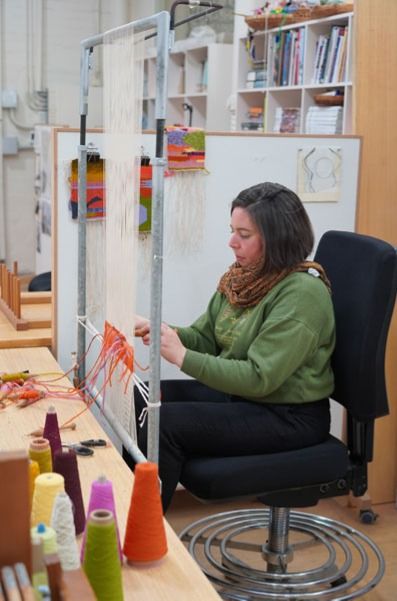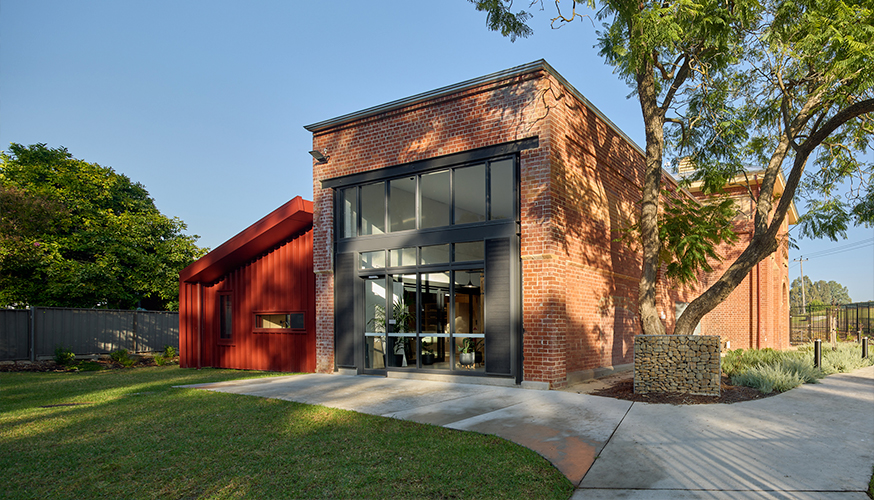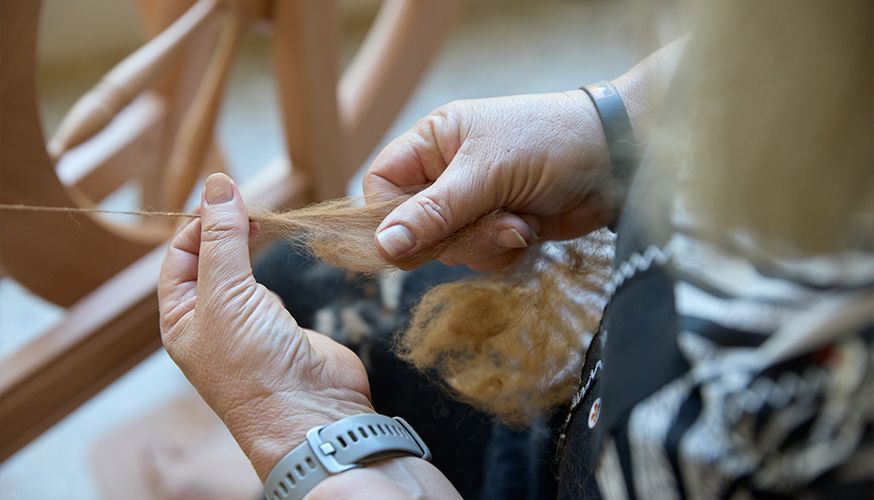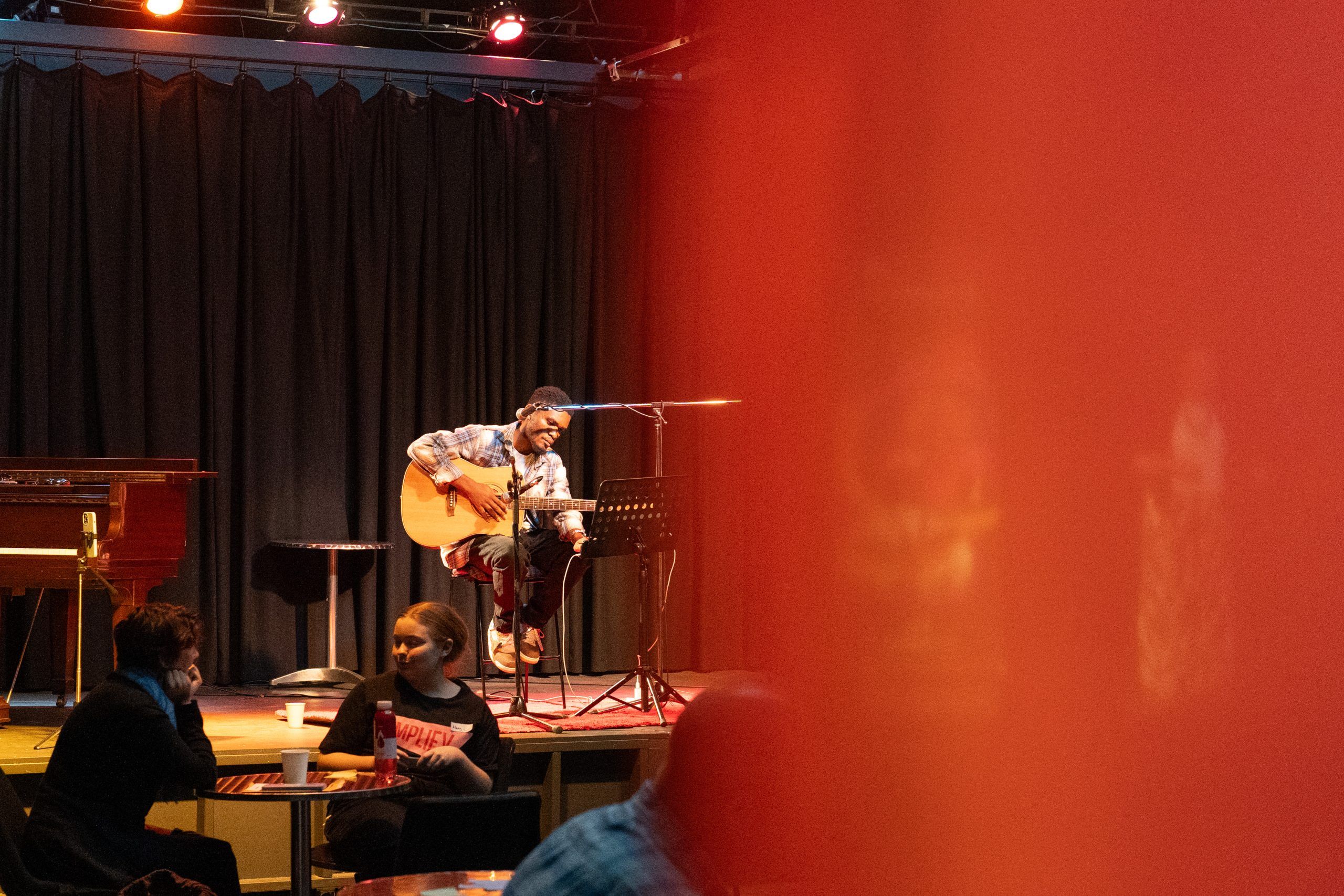2026 Artist in Residence Program – Australian Tapestry Workshop

ATW 2026 Artist in Residence – Information Pack First Peoples, Regional and Open Call Residencies In 2026 ATW will celebrate 50 years of producing exceptional, handwoven tapestries in collaboration with contemporary artists. Our tapestries are commissioned globally for public and private collections. ATW’s annual Residency program offers artists working with textiles or textile techniques the…
August 27, 2025
read
Share this post
ATW 2026 Artist in Residence – Information Pack
First Peoples, Regional and Open Call Residencies
In 2026 ATW will celebrate 50 years of producing exceptional, handwoven tapestries in collaboration with contemporary artists. Our tapestries are commissioned globally for public and private collections.
ATW’s annual Residency program offers artists working with textiles or textile techniques the chance to extend and innovate their practice. For over 20 years, Artists in Residence (AIRs) have immersed themselves in our vibrant studio – exchanging knowledge and skills with tapestry weavers and dye technicians.
AIRs are encouraged to engage with local communities through exhibitions, artist talks and workshops. The residency may be used for experimentation, research, or creating a body of work. Each residency runs up to 8 weeks and includes an exhibition in one of ATW’s two galleries.
Residency Categories (2026)
- First Peoples Residency – offered to an artist identifying as Aboriginal or Torres Strait Islander. Includes $2,500 to assist with accommodation, travel and stipend. Supported by the Irene Davies Residency Scholarship.
- Regional Residency – offered to an artist living in regional Australia*. Includes $2,500 to assist with accommodation, travel and stipend. Supported by the Irene Davies Residency Scholarship.
- Open Call Residencies – two available, open to Australian and international artists.
* ATW uses the Modified Monash Model to determine regional eligibility. Applicants must be outside a ‘Metropolitan Area MM1’.
Residency Dates
20 Apr – 4 Jul 2026
- 3–8 weeks within this timeframe
- Includes exhibition opportunities: 30 Apr – 11 Jul 2026 OR 23 Jul – 3 Oct 2026
5 Oct – 19 Dec 2026
- 3–8 weeks within this timeframe
- Includes a joint, concurrent exhibition: 15 Oct – 19 Dec 2026
Inclusions
- Dedicated working space in the weaving studio
- Access to looms & weaving equipment
- $100 worth of new ATW yarn (plus possible access to post-production yarn/warp)
- Up to 7 hours training with a weaver or dye technician
- Access to ATW’s online tapestry weaving course
- An exhibition in one of ATW’s galleries
- Invitation to a curated group exhibition the following year
Studios
The Artist Studio is within the Production Floor, open to the public Thu–Sat 10am–5pm. Equipment includes:
- 4 shaft, 6 treadle Leclerc floor loom
- 50cm Ashford rigid heddle loom
- 60cm table loom (cloth & tapestry)
- Large Shannock tapestry looms
- Sewing machine, tapestry tools
Exhibition
- Artists exhibit and sell work in ATW’s two galleries.
- Responsible for own transport of works.
- Galleries equipped with plinths, ceiling suspension, signage, sales support, invigilation, installation assistance, curatorial advice, marketing and opening event.
Application Requirements
Submit online form with:
- Contact info (name, address, email, website, Instagram)
- Previous residencies (200 words)
- Practice statement (200 words)
- Residency proposal (200 words)
- Past public programs delivered / ideas (150 words)
- 1-page artist CV (PDF only)
- Up to 10 images (JPEG, max 1MB each)
Deadline: Wednesday 10 September 2025, 1pm AEST
Notification: by 20 October 2025
Apply here: https://austapestry.typeform.com/to/ywFp1yvf
Assessment Criteria
- Artistic Merit – strength of practice, potential for growth and development.
- Viability – achievability of proposed work.
- Engagement – contribution to ATW through ideas, audiences, education/public programs.
The First Peoples Residency will be assessed by a First Peoples representative.
Access & Inclusion
ATW encourages applications from:
- First Peoples artists
- Culturally & linguistically diverse artists
- Regional/remote artists
- Artists with disability
Alternative application methods (e.g. video) may be considered. Contact ATW to discuss support needs.
Share this post
Related News and Resources
Never miss a story
Receive our monthly arts newsletter with the latest news, events, and opportunities from the region.




